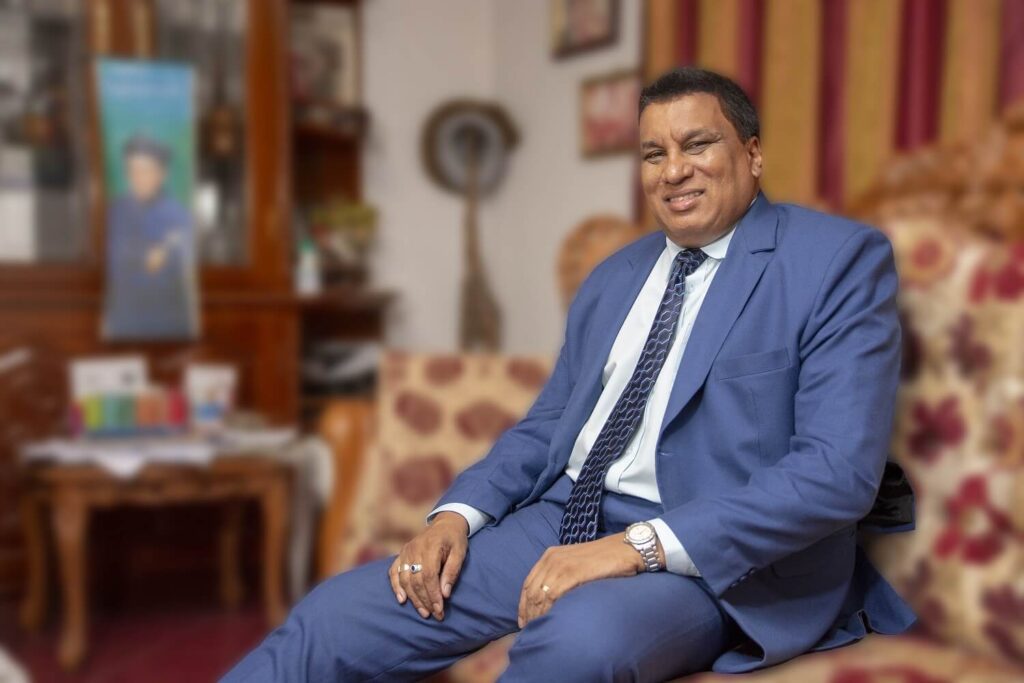How can technology support a strategy of sustainable development?
In the context of the marine ecosystem, there are some important factors that emerge when considering sustainable development and they fall in line with the United Nations Sustainable Development Goals (SDGs) 2030. One of these factors is the protection of ocean resources through better stewardship of our ocean or blue resources; the Blue Economy – SDG 14: Life Below Water. The other factor is the Green Economy which aims for the improvement of social wellbeing while significantly reducing environmental risks and ecological scarcities, oil spillage, water pollution and gas emissions, SDG 13: Climate Action and having access to clean water; SDG 6: Clean Water and Sanitation and Clean Energy, SDG 7: Affordable and Clean Energy. Another important aspect is the circular economy which departs from the traditional linear model of take-make-use- dispose to take-make-regenerate- redesign-recycle-reuse, that is the elimination of waste through the continual use of resources – SDG 13.
The two concepts, digital technology and environmental sustainability, are often mutually reinforcing. And we would go further: Without digital technology, it is hard for companies to ease their pollution footprint or manage waste.
Bringing digital prowess and sustainable practices together should be at the forefront of strategic thinking for the sector to become more resilient — as a way to differentiate itself and gain long- term viability among customers, regulators, and the communities where businesses operate.
Businesses increasingly recognize that it will be impossible to meet the world’s growing demand for products and services purely through a linear increase in production and consumption. People won’t be able to address the ecological and social challenges of the day without fundamental business model innovation and use of technology.
Sweeping technological change brought about by the Internet of Things, Artificial Intelligence (AI), Robotics and Predictive Analytics are all promising to transform global manufacturing, industrial processes, and labour thus supporting the above mentioned SDG goals and a strategy of sustainable development and hence Increase Industry, Innovation, and Infrastructure – SDG 9.
Education and research go hand in hand with vision and timely strategic decision taking, as well as seizing growth opportunities.
Recent studies indicate that education can be leveraged to help enhance an individual’s economic decision-making quality or economic rationality. Research is helpful at every point in the planning process, from market and competitor analysis to identify the size of your market and the trends in your industry.
Therefore, coupled together the two axes help to identify and capture growth opportunities. Mauritius has a sound infrastructure and adequate human resources with regard to academia making education and research an affordable and feasible proposition. By creating the right symbiosis between the maritime industry and the local universities/training institutions, the critical mass of maritime resources can be trained to respond to the growing needs of the industry. Domain experts in the core operational areas of the sector such as transhipment, cargo handling and freight forwarding, sea food, cruise and bunkering can translate and document their expertise into university curricula and train people to deliver in those areas.
Furthermore, these domain experts can also ‘train’ a knowledge based system to capture, self-learn, correct and store the data and thereafter respond to needs for decision making through the use of their inference engine of the AI application.
Once this process is well in place and functional, the next level of maturity is to leverage on this existing infrastructure to have a research and development centre for the maritime industry where cooperation among stakeholders, analysts, researchers and professionals from the region collaborate and cooperate to find solutions to common problems and issues adversely affecting the smooth functioning of the industry. Issues such as the industry preparedness to unexpected or unforeseen circumstances such as the recent pandemic where the health and safety of sea farers were inadequately addressed or the preparation to reassess vessel and capacity deployment, shipping network configuration and port development.
How can Mauritius establish itself as a champion in innovation, especially in the maritime sector?
Our nation has progressed a long way just over half a century after independence in many areas of socio-economic development.
In the field on innovation and technology, there is still a lot to achieve so that we can position ourselves as a smart digital hub for the region. We need to adopt IT strategies that improve our visibility and footprint with network effects to bolster and scale-up business, trade and commerce at affordable cost. Education and training play an important role in preparing our people to seemingly fit in nascent industry environments driven by innovation and technology so that workflow integration allow us to move to the next level of progress.
In the field on BP0 and ITES, we need to climb up the value service chain and handle activities for Knowledge Process Outsourcing and Legal Process Outsourcing.
Quantum Computing is the next era of revolution and stakeholders should invest and capitalise on this opportunity.
Quantum computers can operate at much higher speeds, saving energy in the process. And its applications run across key fields such as healthcare, STEM, data security, next generation cryptography and industry. Furthermore, UK is involved in a project to include Quantum Technology into maritime navigation. This will help counter instability and inaccuracies in location data of ships caused by satellite vulnerabilities. In addition, Quantum computers can efficiently help converge efforts to attain the Paris Agreement’s goal of limiting global warming to less than 2°C.
Recent research has shown that investing $1 in key ocean actions can yield at least $5 in global benefits. Still, the maritime industry has to face issues of its own: maximisation of throughput, decarbonisation of shipping, environmental regulations, autonomy technology, skills shortage, cyber-attacks and data theft, emergency conditions, fuel prices, piracy, and so on. Additional funding is essential to bridge the blue finance gap. It will prevent the decline in ocean health and biodiversity and allow to unravel the full economic potential of the ocean and achieve a Sustainable Ocean Economy.
An integrated proactive and holistic approach in the identification, understanding and resolution of the aforementioned issues can support the migration of our port into an online platform based hub and position Port-Louis as a shining jewel, the Star and Key of the Indian Ocean.
An integrated, proactive and holistic approach in the identification, understanding and resolution of these issues can support the migration of our port into an online platform based hub and include Port-Louis as a shining jewel to the Star and Key of the Indian Ocean.



1 Comment
Great idea and professional thoughts